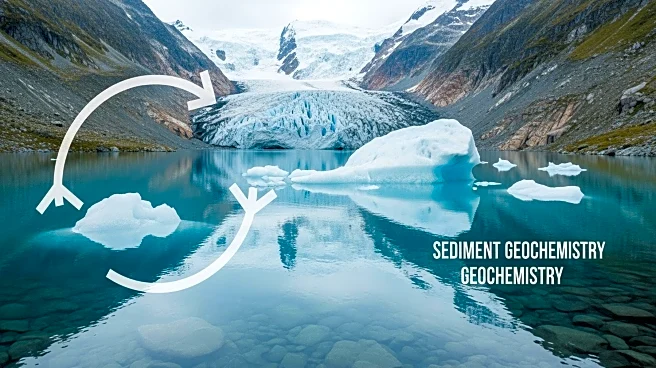What's Happening?
A study published in Nature examines how the tidewater cycle influences the geochemistry of alpine glacial sediment plumes. The research focuses on two fjords, Aialik and Northwestern, and analyzes the chemical weathering processes affecting sediment transport.
The study finds that the tidewater cycle significantly impacts sediment plume dynamics, with variations in sediment transport and chemical weathering observed between the two fjords. The research highlights the role of subglacial meltwater in transporting weathered sediments to the ocean, affecting the geochemical composition of the coastal environment.
Why It's Important?
Understanding the geochemical processes associated with glacial sediment transport is crucial for predicting the environmental impact of glacial retreat due to climate change. The study's findings provide insights into how tidewater glaciers contribute to the chemical composition of coastal waters, which can influence marine ecosystems and nutrient cycles. As climate change accelerates glacial melting, the research underscores the need for comprehensive monitoring of glacial systems to assess their impact on ocean chemistry and global climate patterns. The study may inform future environmental policies and conservation efforts aimed at mitigating the effects of climate change.
What's Next?
Further research is needed to explore the long-term implications of glacial sediment transport on marine ecosystems and global climate. Scientists may conduct additional studies to assess the impact of different glacial systems on ocean chemistry, potentially leading to more accurate climate models. Policymakers and environmental organizations may use these findings to develop strategies for managing the effects of glacial retreat and protecting vulnerable marine habitats. The study may also inspire new research into the interactions between glacial systems and other environmental factors, such as ocean currents and atmospheric conditions.















